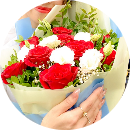I. Choose the best answer.
1. Nowadays, many students who have just left the universities try to stay in big cities (but/ as/ or) they can easily find their jobs and live a comfortable and convenient life there.
2. During rush hours, some parts of Ha Noi and Ho Chi Minh City are often packed (with/ of/ to) people and vehicles.
3. If you have an opportunity to go to Sydney, you should visit both natural and man-made (features/ zones/ attraction) such as Sydney Harbour, the Royal National Park and Bondi Beach.
4. When I visited Hoi An last year, I spent most of my time (to wander/ wandering/ wander) around and looking at the ancient temples, houses and bridges.
5. You can see the (urban area/ convenience/ urban sprawl/ living condition) of the suburbs in Ho Chi Minh City with many apartment buildings, supermarkets, shopping centres, and schools.
6. I suffer from depression and anxiety, but I don’t know (what/ how/ where/ which) to get over my problems.
7. I think living in a city has a number of (drawbacks/ advantages), such as traffic jams, traffic accidents, noise pollution, visual pollution and water pollution.
8. My brother is thirteen years old but he wants to be more (dependent/ independent/ left out). He would like to do everything by himself.
9. She presented me with a new blanket on which she (knitted/ embroidered/ carved) some beautiful flowers.
10. She is very good at knitting. She (knits/ is knitting/ knitted) herself this sweater. It looks very nice.
11. All the main parts of this machine are (made/ done/ woven) of steel.
12. The people in this village are trying to change their designs and quality of their handicrafts (so that/ in order to) their products can be exported to many countries in the world.
13. Van Phuc Village is well known for silk (products/ production/ produce).
14. Osaka has become one of the (better/ best/ most) “liveable” city in Asia.
15. London is probably most famous for its museums, galleries, palaces, and other sights, but it also includes a (greater/ wide/ wider) range of peoples, cultures and religions than many other places.
16. I was born in Scotland but I (grew up/ brought up/ raised) in Northern Ireland.
17. This car is (double/ much/ twice) as expensive as our car.
18. He hasn't (found/ made/ stood) up his mind yet.
19. Try again. Don't give ( up/ off/ away) hope.
20. People come to the parks to (get away/ get out of/ get over) from city noise and traffic.
21. (So/ Because of/ Even though) he worked hard, he couldn’t pass the exam.
22. Physical changes are different for everyone at the adolescence, so we don't need to feel (relaxed/ frightened/ embarassed).
23. It is cold outside. You have to (turn on/ put on/ go on/ come on) your coat.
11. All the main parts of this machine are (made/ done/ woven) of steel.
12. The people in this village are trying to change their designs and quality of their handicrafts (so that/ in order to) their products can be exported to many countries in the world.
13. Van Phuc Village is well known for silk (products/ production/ produce).
14. Osaka has become one of the (better/ best/ most) “liveable” city in Asia.
15. London is probably most famous for its museums, galleries, palaces, and other sights, but it also includes a (greater/ wide/ wider) range of peoples, cultures and religions than many other places.
16. I was born in Scotland but I (grew up/ brought up/ raised) in Northern Ireland.
17. This car is (double/ much/ twice) as expensive as our car.
18. He hasn't (found/ made/ stood) up his mind yet.
19. Try again. Don't give ( up/ off/ away) hope.
20. People come to the parks to (get away/ get out of/ get over) from city noise and traffic.
21. (So/ Because of/ Even though) he worked hard, he couldn’t pass the exam.
22. Physical changes are different for everyone at the adolescence, so we don't need to feel (relaxed/ frightened/ embarassed).
23. It is cold outside. You have to (turn on/ put on/ go on/ come on) your coat.
1. Nowadays, many students who have just left the universities try to stay in big cities (but/ as/ or) they can easily find their jobs and live a comfortable and convenient life there.
2. During rush hours, some parts of Ha Noi and Ho Chi Minh City are often packed (with/ of/ to) people and vehicles.
3. If you have an opportunity to go to Sydney, you should visit both natural and man-made (features/ zones/ attraction) such as Sydney Harbour, the Royal National Park and Bondi Beach.
4. When I visited Hoi An last year, I spent most of my time (to wander/ wandering/ wander) around and looking at the ancient temples, houses and bridges.
5. You can see the (urban area/ convenience/ urban sprawl/ living condition) of the suburbs in Ho Chi Minh City with many apartment buildings, supermarkets, shopping centres, and schools.
6. I suffer from depression and anxiety, but I don’t know (what/ how/ where/ which) to get over my problems.
7. I think living in a city has a number of (drawbacks/ advantages), such as traffic jams, traffic accidents, noise pollution, visual pollution and water pollution.
8. My brother is thirteen years old but he wants to be more (dependent/ independent/ left out). He would like to do everything by himself.
9. She presented me with a new blanket on which she (knitted/ embroidered/ carved) some beautiful flowers.
10. She is very good at knitting. She (knits/ is knitting/ knitted) herself this sweater. It looks very nice.








